

COVER STORY
February 2025
COVER STORY
February 2025
Nurse Leaders Are Losing the Narrative. Here’s How to Take It Back.
COVER STORY
February 2025
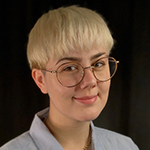
In a social media landscape shaped by hashtags, algorithms, and viral posts, nurse leaders must decide: Will they let the narrative spiral, or can they adapt and join the conversation?


COVER STORY
February 2025
Social Media Shifted the Nursing Narrative. Is It Too Late for Nurse Leaders to Weigh In?
In a social media landscape shaped by hashtags, algorithms, and viral posts, nurse leaders must decide: Will they let the narrative spiral, or can they adapt and join the conversation?


COVER STORY
January 2025
Physician Comp is Skyrocketing. Are Doctors Worth Their Price Tag?
In a landscape shaped by hashtags, algorithms, and viral posts, nurse leaders must decide: Will they let the narrative spiral, or can they adapt and take the reins?

TAKEAWAYS
-
Social media enables the public to learn about all the different opportunities that a nursing career provides and gives nursing a greater seat at the table as leaders continue to invest and evolve.
-
CNOs and nurse influencers are ultimately working towards the same goal and should collaborate with one another to discuss challenges and share solutions.
-
CNOs should get involved with social media and use their voice and style to share best practices, successes, and meaningful recognition to nurses on their teams.
TAKEAWAYS
-
Social media enables the public to learn about all the different opportunities that a nursing career provides and gives nursing a greater seat at the table as leaders continue to invest and evolve.
-
CNOs and nurse influencers are ultimately working towards the same goal and should collaborate with one another to discuss challenges and share solutions.
-
CNOs should get involved with social media and use their voice and style to share best practices, successes, and meaningful recognition to nurses on their teams.
“I saw that on TikTok.”
Those five words have become an anthem of our times, sparking debates in boardrooms, breakrooms, and hospital corridors.
In an era where nurses and healthcare workers are not just caregivers but content creators, social media has become a double-edged sword—an unfiltered window into the world of healthcare, wielded with equal parts power and peril.
From frontline chronicles during the chaos of COVID-19 to viral dance trends and raw stories of burnout, the rise of “nurse influencers” has given the public unprecedented access to the heart of America’s most trusted profession.
But while this digital shift offers opportunities to amplify nursing’s voice and redefine its narrative, it also raises urgent questions: Is it possible for nurse leaders to regain control of the story when some posts expose cracks in the system? How can hospitals address growing dissatisfaction shared online without alienating their workforce or losing public trust?
With nursing’s reputation as the gold standard of ethics slipping, CNOs must step into a new role: social media strategist. The same platforms that spark division can also inspire collaboration if approached with transparency and purpose.
Nurse leaders who embrace these digital spaces can rebuild bridges, champion their teams, and reframe the conversation. Here’s how.
Changing public perception
According to the 2023 Gallup Honesty and Ethics poll, nursing does in fact remain the most trusted profession, with 78% of adults in the United States “believing that nurses have high honesty and ethical standards.” This has rung true for 22 years and counting, the American Nurses Association reported.
However, that 78% is down 11 points from 2020.
“I think the public perception of the trust in nursing has changed for many, many years,” said Cody Legler, senior vice president and chief nursing officer at Maimonides Health and a HealthLeaders Exchange member, who believes the evolution and recognition of the profession have accelerated over the past decade.
“When you look at the last five years now since the pandemic started, and the application of social media across different types of social media and in different forms,” Legler said, “I think it’s actually allowed for the continual evolvement of the public perception of nursing to be positive and respective. In parallel, public health concerns such as workplace violence, have been exposed on a more public and international level.”
78%
The amount of adults in the United States “believing that nurses have high honesty and ethical standards.”
Source: 2023 Gallup Honesty and Ethics poll
According to Legler, social media also enables the public to learn about all the different opportunities that a nursing career provides. Social media has also provided nursing with a greater seat at the table as the respect and influence of nursing leadership continues to evolve.
“I think the specialty areas of opportunity in nursing across the spectrum that have become more prominent … have really helped change the public perception of nursing from the perspective of there being more opportunities throughout different phases of life and stages of a nursing career,” Legler said.
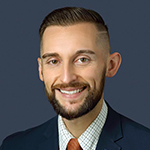
Cody Legler
senior vice president and chief nursing officer at Maimonides Health
One part of the narrative on social media is very focused on targeting and influencing individuals considering going into nursing, students in nursing school, new nurses, and tenured nurses who are looking for other opportunities, according to Legler.
“It’s really driven the opportunities that are in other spaces,” Legler said. “Those spaces include the ambulatory setting and nursing informatics, and we know the healthcare industry continues to shift towards that.”
Social media also shows the public different and alternative ways to work in nursing, especially in the realm of flexible scheduling and technological advancement, such as in the cases of virtual nursing and remote patient monitoring.
“I don’t know if social media influencers, at large, have changed the recruitment process,” Legler said, “but I think they've influenced the areas of interest and the areas of opportunity that present themselves within nursing to be much more publicly known.”
From a talent acquisition and leadership standpoint, Legler explained that there is positive movement in improving the talent acquisition process because of social media.
“It’s really about building [and] ensuring that the nursing leadership team is very connected with a strong communication plan and relationship and frontline team members that we want and certainly need to be very engaged, especially when aligning strategic priorities” Legler said.
The influencer perspective
However, the fact remains that nursing is a difficult profession and is not without its dark sides.
Nurse Erica, who is a registered nurse, nurse leader, and social media influencer, calls attention to several key challenges that nurses describe on her platforms. Erica has amassed a following of almost a million people across her TikTok, Instagram, Facebook, and YouTube pages.
When initially joining social media, Erica noticed the plethora of nursing voices, and that many of them lacked experience. Erica has served as a nurse manager, director of nursing, and a CNO.

Nurse Erica
registered nurse, nurse leader, and social media influencer

“I ended up on ‘nurse TikTok’ and was fascinated,” Erica said, “but what I noticed was it was a lot of frontline nurses, but it was virtually no one that had a leadership perspective, or was willing to risk talking about what really happens behind the curtain.”
According to Erica, the nursing industry’s reaction to her content has been positive.
“Nurses, by and large, are very appreciative,” Erica said. “They love transparency and honesty, and I get mostly positive feedback from nurses.”
The general public has mixed opinions.
“The public sometimes appreciates it, and usually it’s the ones that have nurses in their immediate family, so they hear second-hand what it’s really like,” Erica said. “If they don’t have any nurses, sometimes the public can be very critical of some of the things I have to say.”
Nurse leaders, on the other hand, tend to have negative feedback, and according to Erica, some even discourage their nurses from consuming Nurse Erica content.
“I hear from a lot of nurses unfortunately around the country that during their onboarding … they hear from the CNO specifically about me,” Erica said.
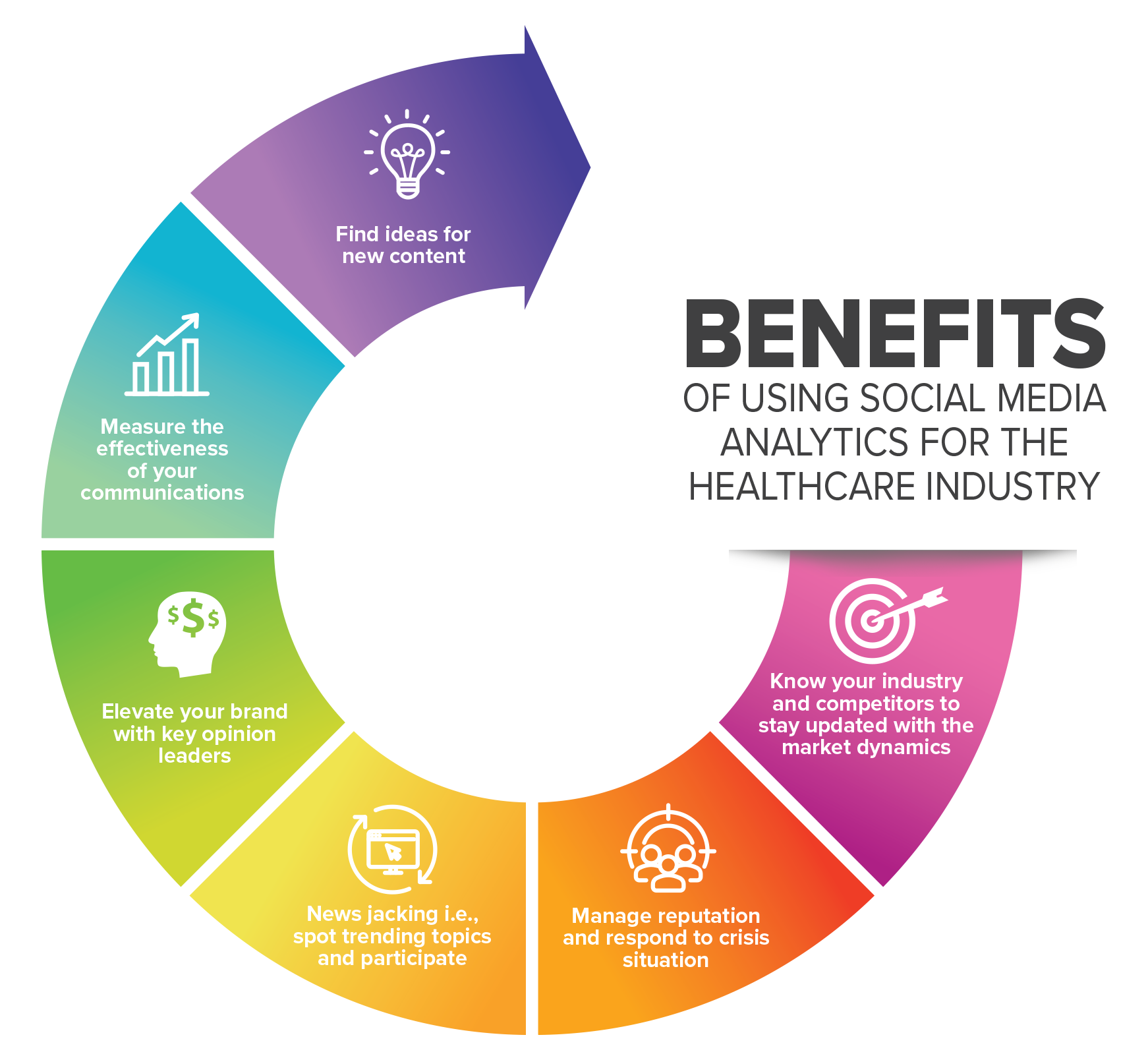
SOURCE: Research World
What do CNOs think?
To CNOs, the existence of nurse influencers can present both an obstacle and an opportunity.
There are many different types of nurse influencers, and to Legler, audiences might resonate with them based on work history in nursing, geographical location, and years of experience.
“I think there's a lot of good that can come from influencers in nursing on social media,” Legler said, “but it doesn’t necessarily mean that all of the influencing that is done on behalf of nursing via social media is in most constructive and positive way at all times.”
Regarding the more negative portrayals of nursing on social media, Legler believes that some are do not represent the bigger picture, but often times that can be because transparent and open communication may not have occurred. Nurse influencers can provide critical information and a different lens to consider viewing information from.
“I think it’s really important to ensure that you’re getting well-rounded, evidence based, credible information from the professional organizations that exist,” Legler said.
Claire Zangerle, the CEO of the American Organization for Nursing Leadership (AONL) and the senior vice president and CNE of the American Hospital Association (AHA), explained that nurse influencers can provide CNOs with important insights.
“We have some very positive nurse influencers, and we have some that aren’t so positive,” Zangerle said. “It’s a little disheartening sometimes to see those that are not so positive, but it also helps us address what they're talking about.”
“I think there are almost always valid points and lessons that can be taken away,” Legler said. “I wouldn't necessarily want to quantify them or define them all as 100% comprehensive.”
Legler added that nursing school enrollment has gone up overall in the United States, vacancy rates have started to come down, and care models continue to evolve.
“But that doesn’t mean that everything’s perfect and there's not a lot of opportunity. We should anticipate rapid evolution of the nursing profession over the next decade, especially related to the aging population and the fact that there are five generations currently in the workforce.”
“I think there’s a lot of good that has come from influencers in nursing on social media, but it doesn't necessarily mean that all of the influencing that is done on behalf of nursing via social media is perhaps done in the most constructive and positive way”
—Cody Legler, SVP and CNO at Maimonides Health
Finding common ground
Nurse influencers and CNOs want many of the same things, which ultimately culminate in better work environments for nurses.
Erica actively campaigns for workplace violence prevention, better staffing solutions, and leadership accountability.
“If we could fix those three things,” Erica said, “we would have nurses there at the bedside.”
“What I noticed [on social media] was a lot of frontline nurses, but it was virtually no one that had a leadership perspective or was willing to risk talking about what really happens behind the curtain.”
—Nurse Erica, registered nurse, nurse leader, and social media influencer
CNOs everywhere also cite workplace violence as a top priority.
“Let’s talk about workplace violence, because some people don’t realize it occurs and … how we mitigate that,” Zangerle said., “And maybe social influencers can help us do that.”
“We know that there’s going to be continual work to do to ensure that we have a very specific focus on workplace violence,” Legler said, “[and to ensure] that in everything we do, diversity, equity, inclusion, and belonging are components of what is constructed in our plans, and what's driving our work for our care teams and ultimately our patients.”
Opportunities for collaboration
Both nurse influencers and CNOs also agree that there are plenty of opportunities for collaboration. According to Erica, from the influencer perspective, it starts with putting aside biases and being willing to partner.
“They have to embrace the fact that what I am saying online is reality,” Erica said. “You can’t just dismiss it, [and] recognize that it does take a certain level of courage to do what I am doing.”
Erica also recommended being cautious about which nurse influencer to partner with. Not all nurse influencers have the same level of experience and knowledge of how the industry works.
“We are not created equal,” Erica said. “There are some, quite a bit actually, out there that I would say find out how long they’ve been a nurse, because the vast majority of them started during the pandemic or shortly before.”
Erica emphasized that communication could start with something as simple as an e-mail. For example, Erica mentioned a CNO who recently reached out to her for advice on how to effectively approach sensitive subjects with nurses during keynote speeches.
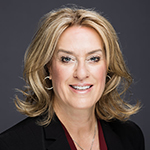
Claire Zangerle
CEO of the American Organization for Nursing Leadership (AONL) and the senior vice president and CNE of the American Hospital Association (AHA)
“I think we should collaborate with our social media influencers and talk a lot about them so that we can help them with their content because we want them to portray the right message.”
—Claire Zangerle, CEO of the American Organization for Nursing Leadership (AONL) and the senior vice president and CNE of the American Hospital Association (AHA)
“Have that talk, like the CNO that reached out to me, that was simply an e-mail introducing himself saying ‘Would you be willing to hop on a Zoom and talk to me?’” Erica said. “I’m always willing to meet with anyone and have a conversation.”
Legler believes the keyword is “opportunity.” It comes down to the culture, tone, open communication and priorities of a health system, and where the engagement of the workforce is currently and where it's going.
“I’m a glass half full, relatively optimistic type of person,” Legler said. “Does that mean that perhaps there’s not some shift in thinking and/or processes or strategies that could be evolved and reshaped [or] formed? Absolutely not.”
To Zangerle, collaboration would mean sharing authentic stories and helping change the narrative in a more positive direction.
“I think we should collaborate with our social media influencers. We can help them with their content because we want them to portray the right message,” Zangerle said. “They have a lot of followers and if they're not portraying the right message, then this disinformation is hurtful to nursing.”
Social media is here to stay
Social media will continue to shape the trajectory of healthcare in many different ways.
“It’s going to continue surfacing gaps in having equitable care and ensuring that everyone’s receiving an equal standard of care and has the access to do so,” Legler said.
Erica emphasized that regardless of whether people like it, social media like TikTok is where nurses are getting their news and information, over traditional news outlets.
“If you want to meet nurses where they’re at, understand that where they're at is social media,” Erica said. “If you want to know how nurses really feel, look at what they're posting on social media that they might be too afraid to say to you at work.”
US Social Media Users Who Engage With or Follow Health Influencers on Social Media, by Generation
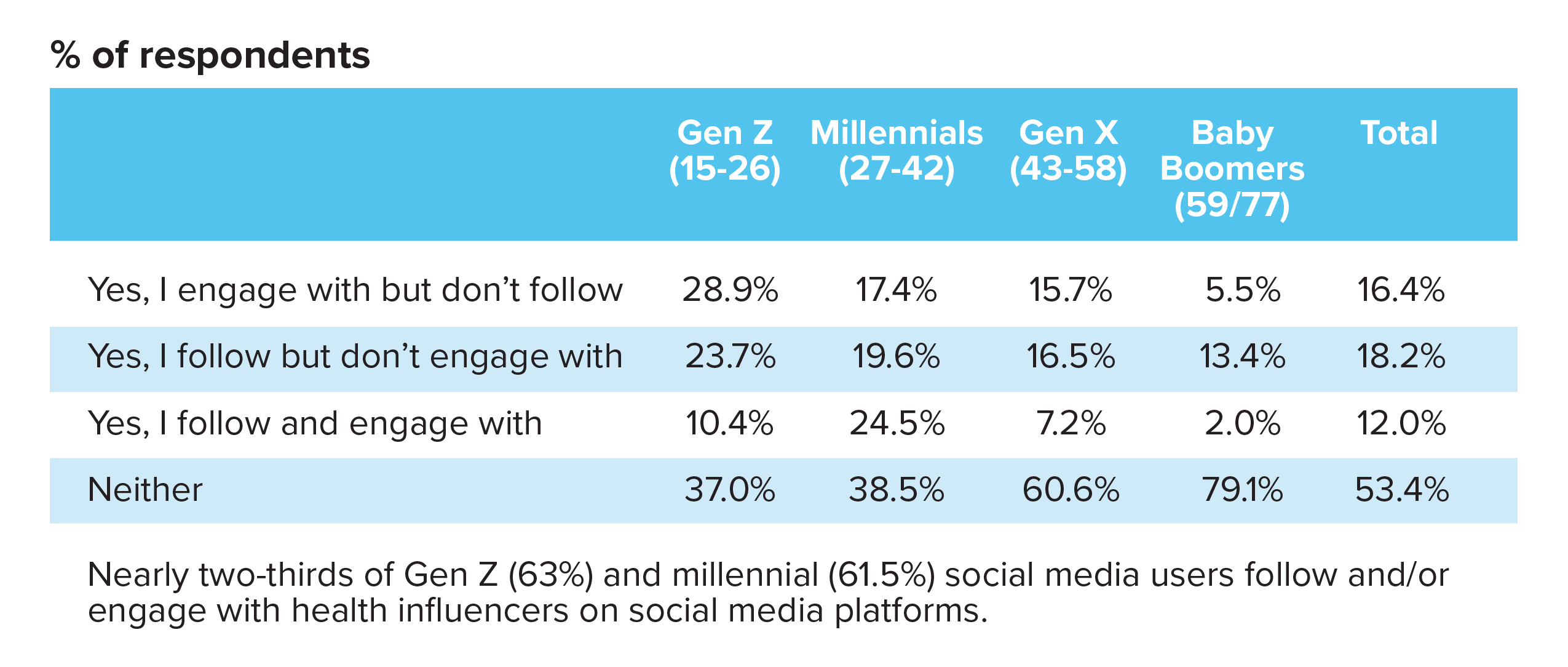
SOURCE: EMARKETER’s December 2023 US Digital Health Survey
Additionally, CNOs should consider getting involved with social media themselves. Legler believes that there is tremendous opportunity for CNOs to use their voice and style to share best practices and how they are recruiting and retaining talent. CNOs can also use social media to provide meaningful recognition to nurses, to make team members feel valued and engaged.
"It’s really important to ensure [you know] what you're targeting and who your audience is,” Legler said. “Because that’s what really makes the difference and allows for those human connections to occur.”
According to Zangerle, AONL values social media as a positive influence. The organization released the AONL Social Media Toolkit for Nursing Leaders, which includes tips on language to use when posting, templates, and examples of positive and negative posts.
“It’s not telling people how to talk; it's just guidelines,” Zangerle said. “It’s a good opportunity for [nurse leaders] to see how they can leverage social media for their professional influence.”
CNOs and other nurse leaders can use the toolkit to leverage social media effectively for community building, advocacy, and professional development. To Zangerle, the goal is to ultimately attract people to the nursing profession.
“We always want to give people the resources to be able to use things in a positive manner,” Zangerle said, “and sharing those positive stories, the authentic stories, it enhances nurse leadership, and it enhances the nursing profession.”
G Hatfield, CNO Editor, HealthLeaders